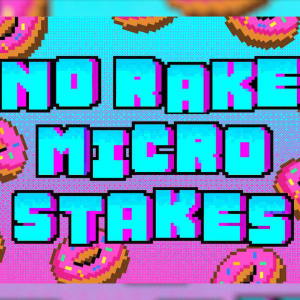
Implied odds is a concept that we must master to become effective players. The problem is it’s trickier than the basic manuals would have us believe. Once we get past calculating basic pot odds we then move onto predicting the future! This is far from simple and to make it worse there are plenty of misconceptions about how we should handle specific situations. Many of these being hard and fast rules in place of a proper thought process.
So what are implied odds? While straightforward pot odds are a simple calculation giving us a perfect answer, implied odds are only an estimation of how much we can expect to win on future streets if we hit our draw. Without being psychic there is no way we can ever come up with a totally accurate answer for our situation.
Our problem becomes even murkier when we are forced to consider that reverse implied odds are also possible. This means that when a lot of chips go into the pot we are expecting to actually lose money over the long run.
Set Mining and Speculative Hands
This problem is as old as the game itself. The worst thing we can do is to follow outdated advice and automatically make a call based on the possibility of winning 10 to 20 times the bet. Another outdated rule is calling up to 10% of the effective stacks.
Today players are much more aggressive and play wider ranges. Even if our opponent only ever reraises premium hands pre-flop we cannot expect to have a profitable call for as much as 10% of our stack every time we hold a pocket pair. We must factor in a number of other player tendencies to decide when deciding if we can make the call.
How often does the villain make a c bet and do they fold to a raise on the flop? Skilled players who play a wide range won’t hit many strong hands that can pay us off, and when they do finally hit gin our small set is going to come unstuck a great deal of the time.
Avoiding Trouble Hands
Post 2003, when the poker boom was getting underway, all the literature for NL advised players to stay away from hands such as A6,KJ, and QT which are easily dominated and give us reverse implied odds. This was done with an assumption that we would pay off way too many chips when our opponent hits top pair along with us. This simply isn’t true in today’s much tougher environment. We expect new players who work on their game to quickly pass this bump in the road.
Other factors such as position and initiative are much more important to deciding if these trouble hands are worth playing. We must also have an understanding how how much value our hand is worth along with our opponent’s tendencies.
Deep Stacks
There is a school of thought among new players that the deeper the effective stacks the better our implied odds will automatically be. In many situations they will indeed be better, but not every time.
A classic example is in online cash games where we meet an opponent who also has a 200bb stack. We might well stand to win a bigger pot if we hit a set, but players are more canny these days and aren’t necessarily going to pay off what is usually seen as two stacks with a small set, especially if there are flushes and straights possible.
This is where we stand to pay off way too many chips when we are beat unless we are careful.
When playing a hand 200-300bb deep we sometimes win less than what we would in a 100bb deep situation because of the pressure we wield. Some opponents fear losing a big pot and fold quicker than they normally would unless they have a monster that truly warrants sticking around.
We also need to be honest with ourselves about our skill level in deep stacked play. We might be crushing for 100bb play but make horrendous errors when deep. Just because we might consider that we are one of the best players at the stacks doesn’t mean that also applies when we are deep.
One Thing That Is True - Position Is King
Anyone who has ever picked up a book on poker strategy will no doubt have learned that position is important in poker. It is also probably the most important factor when dealing with implied odds.
From the warnings above we should now understand that tendencies and being able to make better decisions is key when assessing implied odds. This is, of course, much easier when having position on our opponent. When we are out of position any reverse implied odds are greatly amplified. The situation is a whole lot worse.
Take, for example, cold calling pre-flop from the small blind. Most players understand that we must play extremely tight when doing this. Claiming we can call liberally because we are deep is a recipe for disaster.

